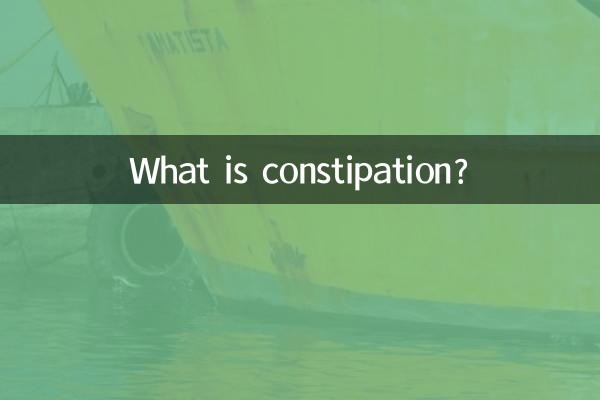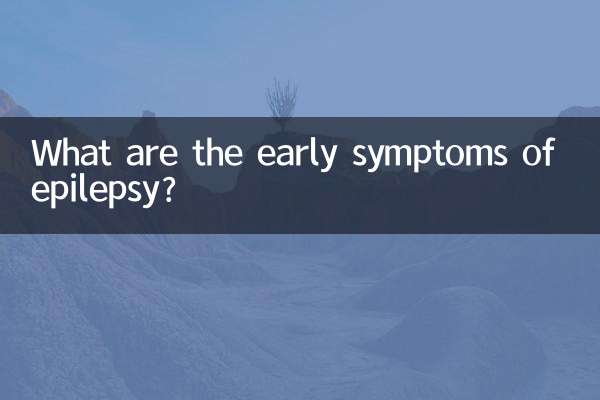What is constipation?
Constipation is a common digestive system disease, mainly characterized by difficulty in defecation, reduced defecation frequency, or dry and hard stool. According to the hot topics and hot content on the Internet in the past 10 days, constipation and related health issues have attracted much attention. Here’s a detailed breakdown of constipation, including its definition, causes, symptoms, treatments, and prevention.
1. Definition of constipation

Constipation refers to the frequency of defecation being less than 3 times per week, or the feeling of straining during defecation, dry and hard stool, and incomplete defecation. According to the duration, it can be divided into acute constipation and chronic constipation.
| Type | Features |
|---|---|
| acute constipation | Occurs suddenly, lasts for a short time, and may be related to changes in diet and living habits |
| chronic constipation | Lasting for more than 3 months, may be related to disease, drugs or long-term bad habits |
2. Common causes of constipation
There are various causes of constipation. The following are the common causes that are hotly discussed on the Internet:
| Cause category | specific reasons |
|---|---|
| dietary factors | Insufficient dietary fiber intake, drinking too little water, and high-fat diet |
| living habits | Lack of exercise, prolonged sitting, and neglect of bowel movements |
| disease factors | Intestinal diseases (such as irritable bowel syndrome), endocrine diseases (such as diabetes) |
| drug factors | Side effects of antidepressants, calcium, iron and other drugs |
3. Symptoms of constipation
Symptoms of constipation are not limited to difficulty defecation, but may also be accompanied by the following symptoms:
| Symptoms | Description |
|---|---|
| Struggling to defecate | Requires straining or takes a long time to complete a bowel movement |
| Decreased bowel movements | Having fewer than 3 bowel movements per week |
| Dry and hard stool | Stool that is lumpy or hard ball-shaped |
| abdominal bloating | Abdominal fullness and discomfort |
4. Treatment methods for constipation
According to recent hot discussions, the treatment of constipation mainly includes lifestyle adjustments and medical intervention:
| Treatment | Specific measures |
|---|---|
| diet modification | Increase dietary fiber (whole grains, vegetables and fruits) and drink more water |
| exercise therapy | Daily moderate exercise (such as walking, yoga) to promote intestinal peristalsis |
| drug treatment | Use laxatives, probiotics, etc. under the guidance of a doctor |
| Traditional Chinese Medicine Conditioning | Acupuncture, massage, traditional Chinese medicine and other traditional therapies |
5. Preventive measures for constipation
The key to preventing constipation is to establish good living habits:
| Precautions | Specific content |
|---|---|
| Regular schedule | Defecate at a fixed time and do not ignore bowel movements |
| Eat properly | Take in 25-30g dietary fiber every day and drink 1.5-2L of water. |
| moderate exercise | At least 150 minutes of moderate-intensity exercise per week |
| Reduce stress and relax | Relieve stress through meditation and deep breathing |
6. Popular discussions about constipation
Constipation-related topics that have been hotly discussed on the Internet recently include:
1.The difference between functional constipation and organic constipation: Experts emphasize the need to rule out intestinal lesions through professional examinations
2.The effect of probiotics on constipation: Some studies suggest specific strains may improve intestinal function
3.Constipation problem in children: Parents need to pay attention to their children’s defecation habits and dietary structure
4.Constipation management in the elderly: As age increases, intestinal function decline requires special attention.
5.Constipation and intestinal microecology: Intestinal flora imbalance may be an important cause of chronic constipation
Summary
Although constipation is common, it cannot be ignored. By understanding its causes, symptoms, and prevention and treatment methods, the problem of constipation can be effectively improved. If symptoms persist or worsen, you should seek medical attention promptly to check for underlying diseases. Maintaining a good lifestyle is key to preventing and treating constipation.

check the details

check the details